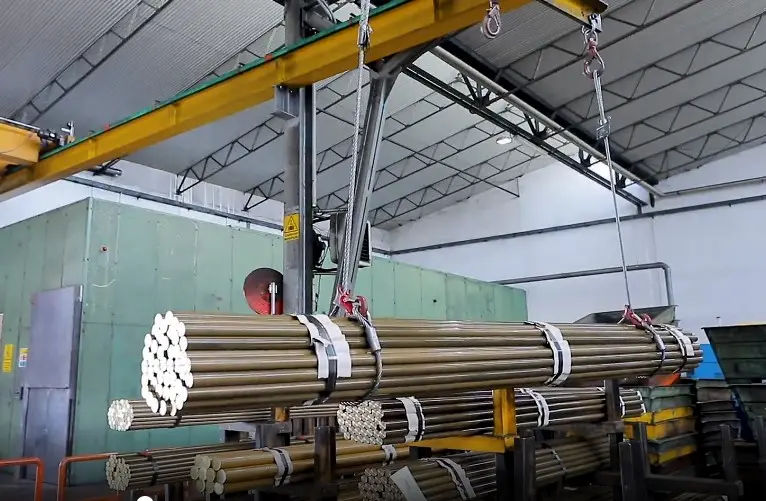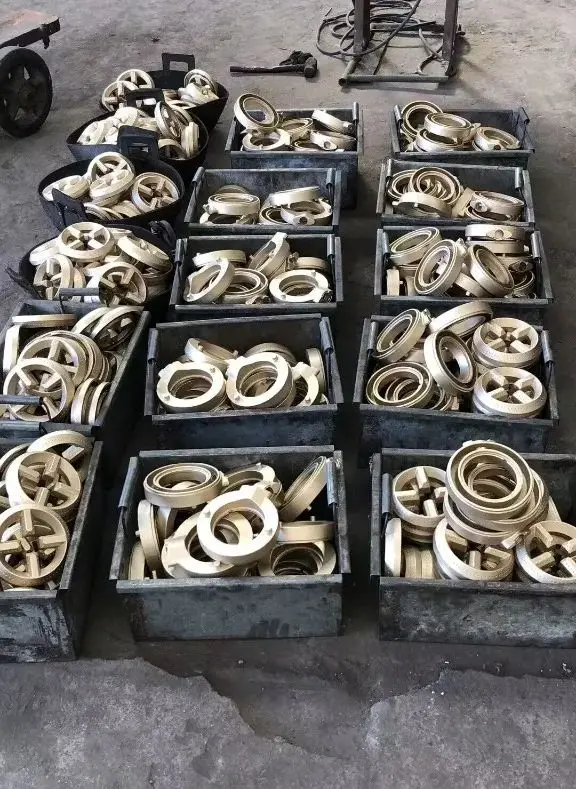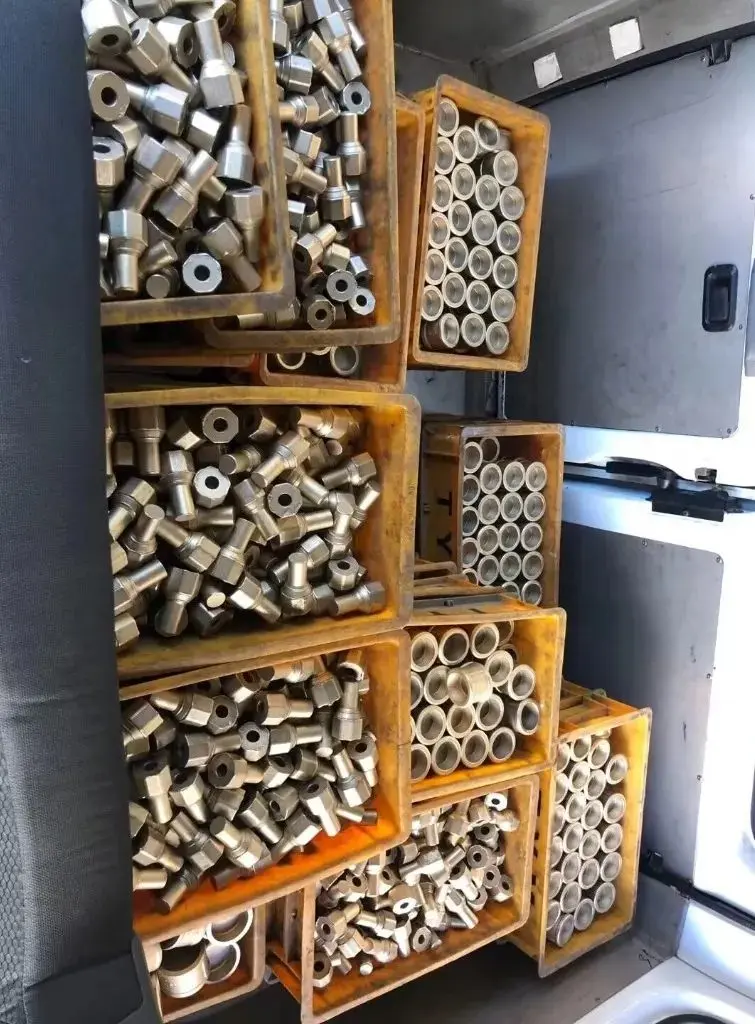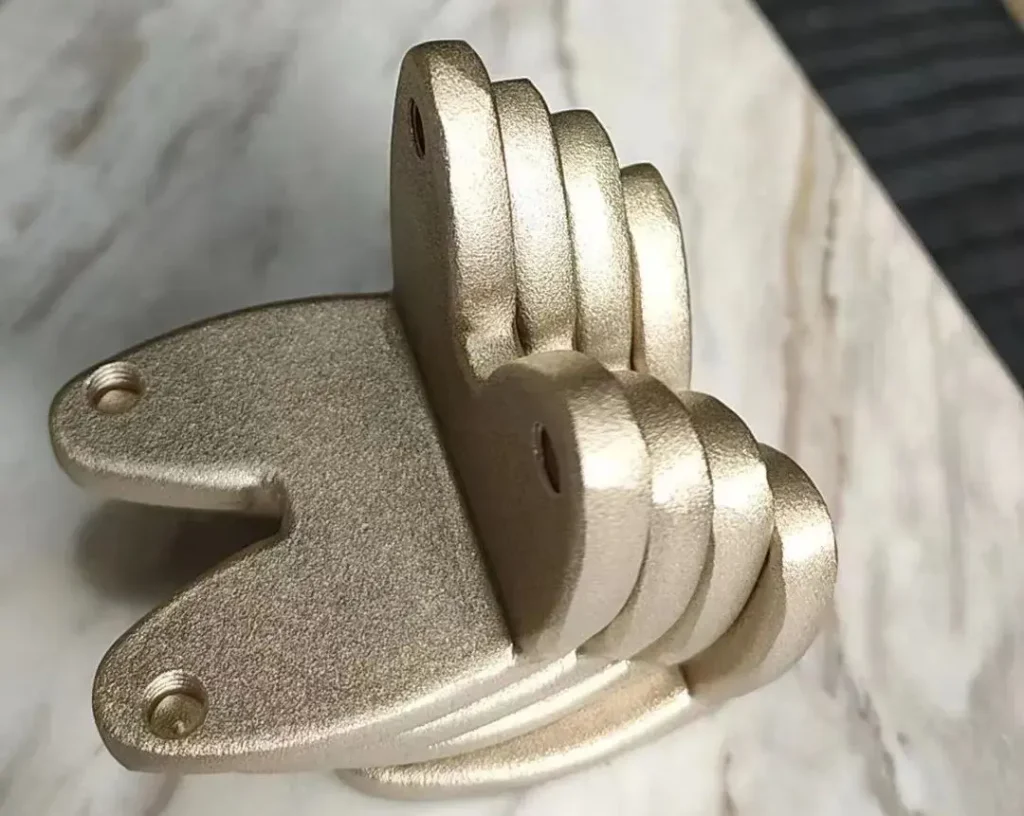High-Quality Bronze Forging Services | Expert Bronze Forged Components
Bronze forging is a sophisticated process that transforms raw bronze into high-quality, precision-engineered components. This technique is essential for producing durable and reliable parts used in various industries. In this article, we explore the intricacies of bronze forging, including the types of bronze used, the forging process, and why Welleshaft stands out as a trusted global supplier and contract manufacturer for bronze forged components.
Section 1:Understanding Bronze Forging
What is Bronze Forging?
Bronze forging is the process of shaping bronze metal through controlled pressure and heat. This method enhances the metal’s strength, toughness, and durability, making it suitable for applications that demand high performance. Forged bronze components are known for their resistance to wear and corrosion, making them ideal for use in machinery, automotive parts, and artistic applications.
Section 2:Types of Bronze for Forging
Best Bronze for Forging
Selecting the right type of bronze for forging is crucial for achieving optimal results. Some of the best bronze alloys for forging include:
- Aluminum Bronze:Known for its strength and resistance to corrosion, this alloy contains aluminum and is used in applications requiring high durability.
- Silicon Bronze:This alloy is valued for its excellent corrosion resistance and is often used in marine and architectural applications.
- 655 Bronze:This is a type of aluminum bronze with high strength and wear resistance, commonly used in heavy-duty applications.
- Phosphor bronze: Thisis valued for its wear resistance and is used in applications requiring good elasticity and strength, such as electrical contacts and springs.
- Beryllium bronze:This is often used in demanding applications requiring high strength and conductivity, including aerospace components and precision tools.
- Leaded bronze: Thisis primarily used in applications where ease of machining is critical, such as in bearings and bushings.
- Gunmetal bronze:This is used in applications requiring a balance of strength, durability, and resistance to wear and corrosion.Traditionally used in cannonballs, valves, and machinery parts.
- Tin bronze: Thisis used for applications where high corrosion resistance and durability are required, such as in marine hardware and historical artifacts.

Section 3:The Bronze Forging Process
Bronze Forging Process: A Step-by-Step Guide
1.Material Selection:Choose the appropriate bronze alloy based on the desired properties of the final product.
2.Heating:The bronze is heated to a temperature where it becomes malleable but not molten. The typical forging temperature for bronze ranges from 700°C to 1,200°C (1,292°F to 2,192°F), depending on the specific alloy.
3.Forging:The heated bronze is shaped using methods such as hot forging, cold forging, or drop forging. The choice of method depends on the alloy and the desired characteristics of the forged component.
4.Cooling and Finishing:After forging, the bronze component is cooled and undergoes finishing processes like machining and surface treatment to meet final specifications.
Section 4:Techniques and Equipment
1.Hot Forging Bronze
Hot forging involves heating the bronze to a temperature that makes it easier to shape. This method is commonly used for large or complex components and ensures that the final product maintains its structural integrity.
2.Cold Forging Bronze
Cold forging is used for smaller, more precise components and involves shaping the bronze at room temperature. This technique is less common for bronze but can be used for specific applications requiring high precision.
3.Bronze Forging Kit
A bronze forging kit typically includes the necessary tools and equipment for small-scale forging projects. This kit may include a forge, hammers, anvils, and other essential tools for shaping bronze.
Section 5:Applications of Bronze Forgings
Bronze forgings are highly valued across various industries for their strength, durability, and resistance to corrosion. The unique properties of forged bronze make it suitable for a wide range of applications, from industrial machinery to artistic creations. Below are some key applications of bronze forgings:
1. Industrial Applications
Machinery Components: Forged bronze components are used in machinery where high wear resistance and strength are crucial. These include gears, bearings, and bushings that benefit from bronze’s ability to withstand heavy loads and reduce friction.
Pumps and Valves: Bronze forgings are widely used in the manufacturing of pumps and valves due to their excellent corrosion resistance and mechanical properties. This makes them ideal for handling fluids and gases in various industrial processes.
Automotive Parts: In the automotive industry, bronze forgings are used for components such as pistons, connecting rods, and other parts that require high strength and durability. For example, forged bronze components are employed in vehicles like the Nissan Maxima to enhance performance and longevity.
Forged Bronze Nissan Maxima: Bronze forgings are used in various automotive applications, including components for models like the Nissan Maxima. These components benefit from bronze’s durability and wear resistance.
2. Marine and Aerospace Applications
Marine Hardware: Bronze’s resistance to seawater corrosion makes it an ideal material for marine hardware. Forged bronze components are used in propellers, ship fittings, and other marine equipment where exposure to harsh conditions is a factor.
Aerospace Components: In aerospace, bronze forgings are utilized for components that need to endure extreme conditions. Forged bronze is used in various parts of aircraft and spacecraft where strength and reliability are essential.
3. Architectural and Artistic Applications
Sculptures and Statues: Bronze forging is used to create sculptures and statues, including historical reproductions and artistic works. The ability to achieve intricate details and durable finishes makes forged bronze a preferred choice for artists and architects.
Forging Bronze Swords: In the realm of artistry and historical reproduction, bronze forging is used to create decorative and functional items, such as bronze swords. The forging process allows for the creation of intricate designs and durable blades.
Architectural Elements: Forged bronze is also used in architectural elements such as doors, railings, and decorative fittings. Its aesthetic appeal and durability make it suitable for both functional and ornamental purposes in buildings.
4. Defense and Historical Reproductions
Weaponry: In historical reenactments and defense applications, bronze forging is used to create weapons and armor. Forged bronze swords, shields, and other historical weaponry are valued for their historical accuracy and strength.
Military Hardware: Forged bronze components are used in various military applications where durability and performance are critical. This includes parts for firearms, artillery, and other military equipment.
5. Electrical and Plumbing Applications
Electrical Contacts: Due to its excellent electrical conductivity, forged bronze is used in electrical contacts and connectors. These components benefit from bronze’s ability to maintain conductivity and resist wear.
Plumbing Fixtures: Forged bronze is commonly used in plumbing fixtures such as faucets and fittings. Its resistance to corrosion and strength make it ideal for handling water and other fluids in residential and commercial plumbing systems.
6. Custom and Specialized Applications
Custom Forgings: Bronze forgings can be tailored to meet specific requirements for custom projects. This includes producing bespoke components for specialized machinery, equipment, and devices across various industries.
Specialized Tools: Forged bronze is used in the creation of specialized tools that require both strength and precision. These tools are used in various applications, including manufacturing, construction, and maintenance.

Section 6:Special Considerations
1.How to Forge Aluminum Bronze
Forging aluminum bronze involves heating the alloy to its appropriate forging temperature, shaping it with precision tools, and then cooling it carefully. Aluminum bronze is known for its high strength and resistance to corrosion.
2.Forging Silicon Bronze
Silicon bronze is forged similarly to other bronze alloys but may require specific temperature and handling considerations due to its unique properties.
3.Can Aluminum Bronze Be Forged?
Yes, aluminum bronze can be forged. This alloy’s high strength and resistance to wear make it suitable for forging into various components.
4.Can You Make Bronze with Aluminum?
Yes, aluminum is used as an alloying element in bronze to create aluminum bronze, which combines the properties of both metals for enhanced performance.
5.How Hot to Forge Bronze?
The temperature required to forge bronze varies depending on the specific alloy. Generally, bronze is heated to temperatures between 700°C and 1,200°C (1,292°F to 2,192°F) for effective forging.
Section 7:Why Choose Welleshaft?
Welleshaft: Your Trusted Global Supplier and Contract Manufacturer
When it comes to high-quality bronze forgings, Welleshaft is a leading global supplier and contract manufacturer known for its commitment to excellence. Their advanced forging technology, skilled workforce, and rigorous quality control ensure that every bronze component meets the highest standards of performance and durability.
Welleshaft’s expertise extends across various bronze alloys, including aluminum bronze and silicon bronze, providing tailored solutions to meet your specific needs. Their global reach and reputation for reliability make them an ideal partner for businesses seeking top-notch bronze forgings.

Conclusion
Bronze forging is a critical process that enhances the strength, durability, and performance of bronze components. By understanding the bronze forging process, the types of bronze used, and the benefits of forging, you can make informed decisions for your projects. Welleshaft offers the expertise and reliability needed to deliver high-quality bronze forgings that meet your exact specifications.
For more information on bronze forgings and to explore how Welleshaft can support your needs, visit Welleshaft’s website or contact their team of experts today.

